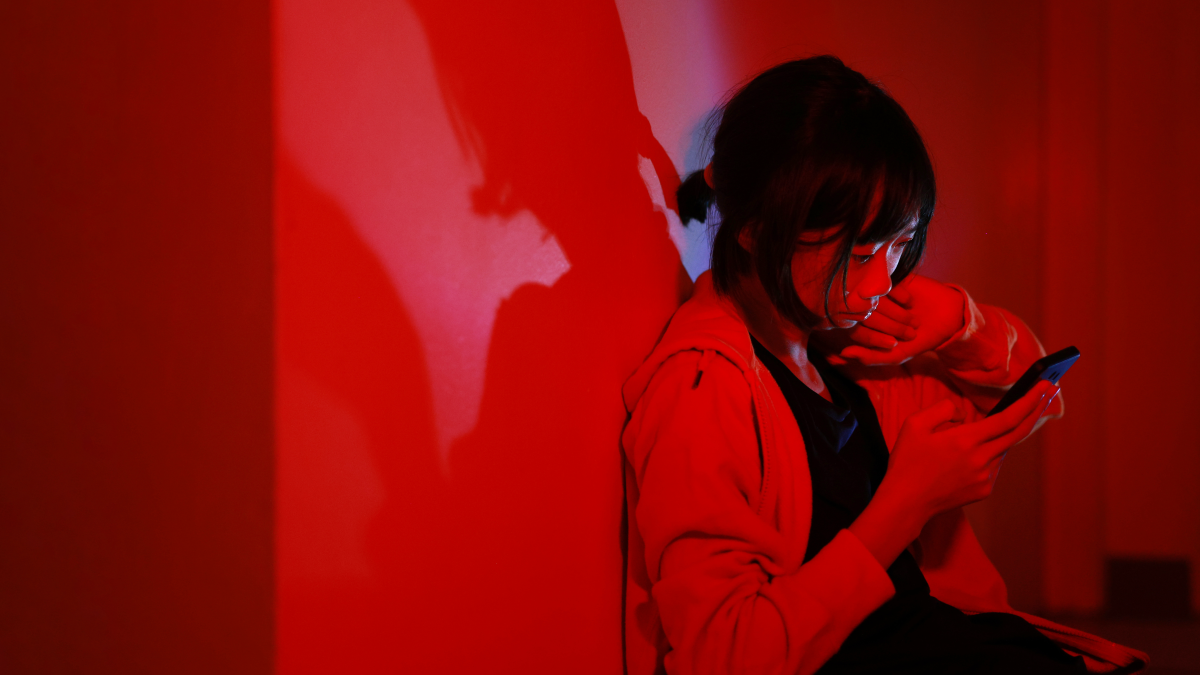Teens are more likely to fall for online conspiracy theories than adults, new study finds. Here’s what parents can do to help.

Conspiracy theories — from COVID misinformation to the disputed existence of Helen Keller — abound online, and according to new research, it’s teenagers who are most likely to be taken in. Ahead, experts explain how a lack of media literacy has warped some teens’ “sense of reality” — and what parents can do to help them separate fact from fiction.
What the study says
Released earlier this month by the Center for Countering Digital Hate, the study — conducted with the help of polling company Survation — questioned more than 1,000 U.S. adults along with more than 1,000 American teens between the ages of 13 and 17. Participants were presented with eight statements corresponding with common conspiracy theories about a range of themes: anti-vaccine, antisemitism, incel ideology, COVID-19, climate denial, the so-called deep state, anti-LGBTQ “groomer” myths and the “great replacement.”
While the study found that both groups (68% of adults and 83% of teens) agree that there can be real-life repercussions for spreading online harm, the results also “indicated an alarming prevalence of belief in conspiracy theories among the U.S. public.”
What are the key findings?
According to the study, teens were more likely to fall for conspiracy theories. When presented with the eight statements associated with conspiracy theories, 60% of 13- to 17-year-olds expressed agreement with four or more, compared with 49% of adults.
Numbers were even higher for teenagers who spend four or more hours a day on any single social media platform; 69% of those with a high degree of social media use agreed with four or more conspiracy statements.
For example, the statement “Jewish people have a disproportionate amount of control over the media, politics and the economy” drew agreement from 43% of teens. Among teens who identified as heavy social media users, this number increased to 54%. A statement aligned with the “great replacement” theory also drew support from 43% of teens overall; the number jumped to 52% among teens who are heavy social media users.
What do experts think?
Imran Ahmed, founder and CEO of the Center for Countering Digital Hate US/UK, says these results should be a wake-up call.
“We typically think young people aren’t affected by conspiracy theories as much as older people. There’s this idea that it’s your crazy older uncle who believes that stuff,” Ahmed tells Yahoo Life. “What this shows us is young people are vulnerable, particularly those who use social media a lot.”
He points to the percentage of teens who expressed support for polarizing conspiracy theories.
“Typically, when we worry about these issues, like climate change, we think it’s the kids who will save us, or we are doing this for our kids,” Ahmed says, “but what we’ve seen here with the information is engagement has really damaged their sense of reality.”
What can parents do?
Parenting and technology expert Devorah Heitner is the author of Screenwise: Helping Kids Thrive (and Survive) in Their Digital World and the upcoming Growing Up in Public: Coming of Age in a Digital World. She says if your teen’s beliefs have an impact on their actions, it’s time to step in. That said, she acknowledges it can be tricky for parents to handle that conversation.
“You don’t want to come down on them and make them feel dumb, because if you … attack a teenager’s point of view, especially as parents, they double down,” Heitner tells Yahoo Life. “All of us have been taken in by misinformation. We need to come from a very sympathetic place.”
She suggests parents help teens do a deep dive to learn more about the topic. Research a variety of publications and data, talk to people educated in that field and have discussions.
Some red flags: If a teen is spending a lot of time on sites like Reddit or on the dark web, or if they are following controversial influencers such as Andrew Tate or hate groups, Heitner says that’s when parents should talk to someone or get a third party, like a family therapist, involved.
“There are people out there targeting teens,” Heitner says. “[Teens] will think, ‘Oh, this is the stuff adults haven’t told me.’ They recognize there is more in the world, but they need to know anytime someone is blaming a group of people in the world, this is something to be skeptical about.”
Parents should be cautious if their teens say they are simply watching content but not participating in the discussion. That can be a slippery slope.
“Money is still being made, because eyeballs are on it,” Heitner notes. “You don’t want [teens] to get used to these kind of things.”
While she finds the results of the study troubling, Heitner says it’s possible that teen respondents didn’t fully understand the conspiracy theory statements they agreed with.
“I would hope kids would know to fact-check anything they see on TikTok, Twitter or YouTube,” she says. “This is one of the things we need to work on. Schools need to do much more media literacy with kids.”
Encouraging teens to be on the school’s debate team or take journalism classes, even if they have no desire to go into these fields, could help. Heitner says it will teach them to question and research.
“We need to teach our kids they have a responsibility to not share something unless they know it’s true,” she says. “We don’t want to amplify misinformation. We don’t want to amplify or spread misinformation.”


